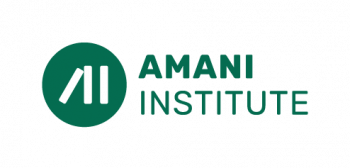While the flipped classroom, EdX, and portfolio-based learning all exemplify the tremendous evolution that is taking place in higher education, a whole field of adult learning programs is sprouting up and filling a gap left by even the most-evolved higher education institutions. These new models, which emphasize human interaction and multidimensional learning, are experimenting beyond the capacity of traditional higher education and producing valuable insights into what the future of education will look like.
These learning programs, some of which I detail below, have two powerful advantages: They are small, and they are young. The small size enables agility; their youth enables idealism. They are asking the question, “What is the purpose of education in the first place?” And they are testing alternatives to student loans like crowdfunding, creative methods to demonstrate learning like gamification, and real-world integration through synergistic partnerships with businesses.
These new models are cultivating 21st-century skills, including intercultural communication, systems thinking, social and emotional intelligence, empathy, and social entrepreneurship. They have the freedom to experiment because they don’t have to report to accreditation boards or adhere to concretized cultures. They also have a mandate to produce real, tangible value, because if they don’t, they disappear.
Measuring What Counts
Since learning in these programs isn’t based on traditional metrics like grades, they are creating new ways to make learning quantifiable. One of these ways is through gamification. Producia, for example, created a platform to gamify the social enterprise startup process. Students go on a shared journey of missions designed to support their learning and action. In the process, they connect to a real-life community of support that includes mentors, talent, and if relevant, customers and project funders. As students demonstrate their learning and support the learning of others, they gain “XP,” or “experience points,” which unlock more perks within the community. The integration of gaming not only illuminates the learning, but also fosters a collaborative environment where the learning is interconnected and based on real-world needs and opportunities.
The Power of Human Relationships
The core of these new programs is not technology, but humans. Don Michael Randel, former Professor Emeritus of Music at the University of Chicago said in a lecture, “The business of education—which is the business of transforming people’s lives—is fundamentally a people-intensive business.” In our own program, Mycelium, each of our students have a personal learning coach; a practice group of peers; a support council created from their personal network; and access to a global community of professionals, experts, and thought leaders. Trained learning facilitators support the entire 12-week experience and guide the program.
The Open Masters, which originated in Washington, DC, is a tuition-free, self-directed learning community where individuals support one another in developing and executing personally customized learning plans. Since its inception in 2012, students have pursued learning in diverse fields such as art for social change, urban farming, and chair design. These self-organizing learning networks have now spread to San Francisco and the Netherlands as well.
Multi-Dimensional Learning
Systems thinking, complexity, and indigenous wisdom are in the DNA of many of these emerging programs. Rather than simply ingesting data to produce a desired result, the programs are looking at the complexity of humans within the complexity of their worlds. A recent SSIR post written by the team at the Amani Institute, explores something they call the “wound-gift concept,” which is the belief that people can surface a wellspring of insight and innovation by diving into their personal challenges. The Journey Network, a peripatetic learning program based in Europe, is something akin to a gap year crossed with avision quest where coming of age adults travel, reflect, and pursue life purpose within an interconnected network of support.
By honoring formative life experiences, learning styles, and cultural conditioning, there is tremendous potential to nurture the whole individual in their pursuit to add value to the world in a personally meaningful way.
What we’re noticing is that many of these programs have flexible structures that meet the evolving needs of the student and the world. These programs go beyond focusing on what is and instead look at what’s possible. Hungarian systems scientist Bela Banathy wrote, “Evolutionary learning is about knowledge creation and cultural innovation. It is guided by questions of possibility that expand the edge of what we already know in order to create what we can only imagine.”
Those who have the most rigorously tested answers will not drive the future of learning; those who pursue the most meaningful questions will.




